1. Introduction
Why Expert Cat Care Matters
Providing expert care for your cat is crucial for their well-being. Cats are known for their independence, but this does not mean they do not require proper care. Expert cat care ensures that your feline receives the attention they need to prevent and manage health issues, leading to a long and healthy life.
The importance of veterinary guidance cannot be understated. Vets offer comprehensive insights into your cat’s health that you may not detect at home. This professional input includes nutritional advice, behavioral tips, and preventive care strategies that are tailored to your cat’s specific needs.
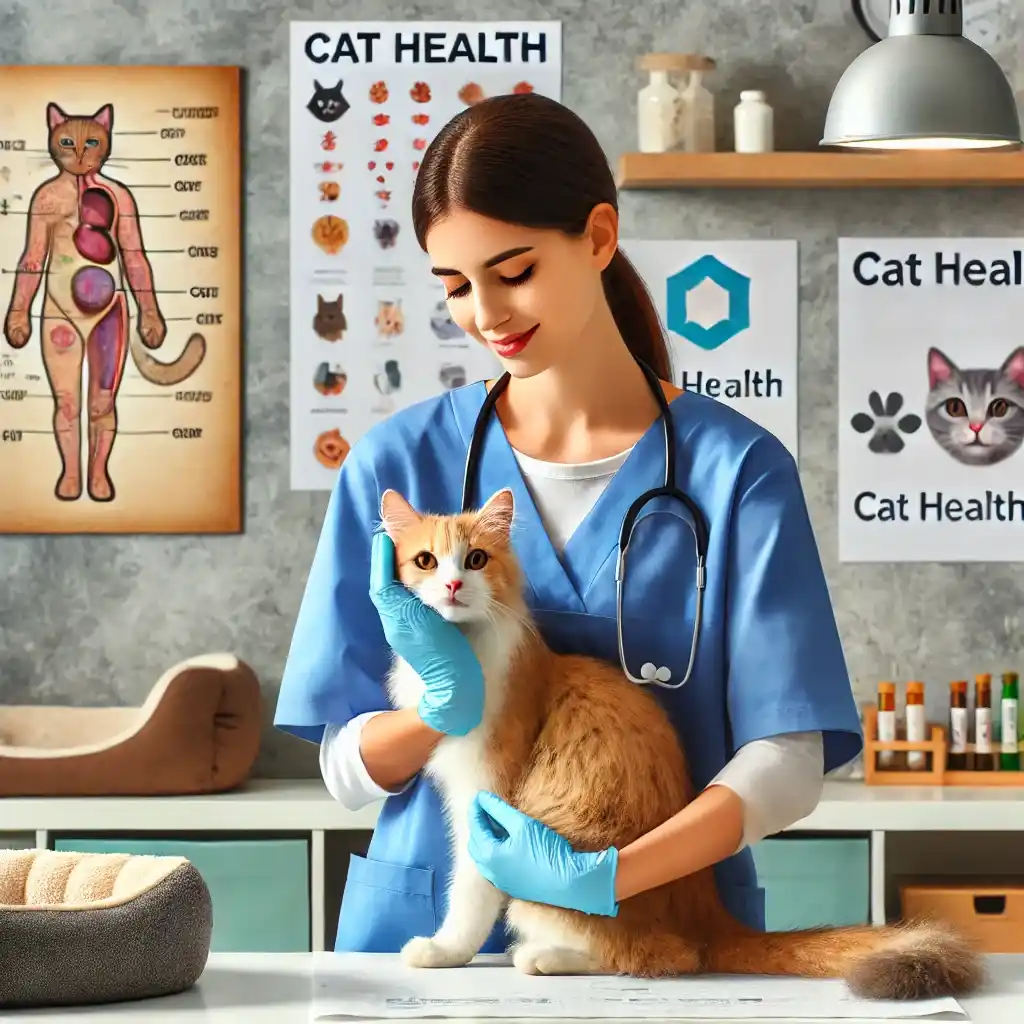
The Role of a Vet in Cat Health
A veterinarian plays an essential role in maintaining your cat’s health. Regular vet visits allow for the early detection of health issues, which can be critical for effective treatment. Vets can spot subtle signs of illness or discomfort that might go unnoticed by owners, ensuring timely and appropriate treatment.
Beyond physical health, a vet can offer advice on behavioral issues and suggest solutions to make life easier for both you and your pet. For instance, if your cat exhibits signs of stress or anxiety, your vet can recommend calming techniques, products, or medical interventions.
2. Routine Health Checks
Importance of Regular Vet Visits
Routine vet visits are a cornerstone of responsible cat ownership. These check-ups allow for the early detection of potential health problems before they become severe. During these visits, the vet examines your cat’s vital signs, checks for external parasites, and looks at your cat’s coat, eyes, and overall body condition.
Routine health checks help create a baseline of what is normal for your cat. This baseline is useful if there are any sudden changes in behavior or appearance, as it allows your vet to make more informed decisions. These check-ups also provide an opportunity for you to ask questions and gain advice on how to care for your cat properly.
What to Expect During a Check-Up
A standard check-up involves several assessments to ensure your cat’s health is on track. Your vet may:
- Measure weight and body condition score: Monitoring weight helps to manage obesity or detect unexpected weight loss.
- Examine eyes, ears, and mouth: Checking these areas helps identify infections or dental disease.
- Palpate the abdomen: This checks for any signs of pain or abnormalities.
- Listen to the heart and lungs: Detecting heart murmurs or respiratory issues early is important for preventing more severe conditions.
Vets may also suggest blood tests and urine analysis, especially if your cat is older, to identify internal health issues.
3. Nutrition and Diet
Choosing the Right Food
Choosing the right diet for your cat involves understanding their nutritional needs and selecting food that meets those requirements. Cats are obligate carnivores, meaning their diet must include meat to provide the essential amino acids, vitamins, and minerals necessary for their health.
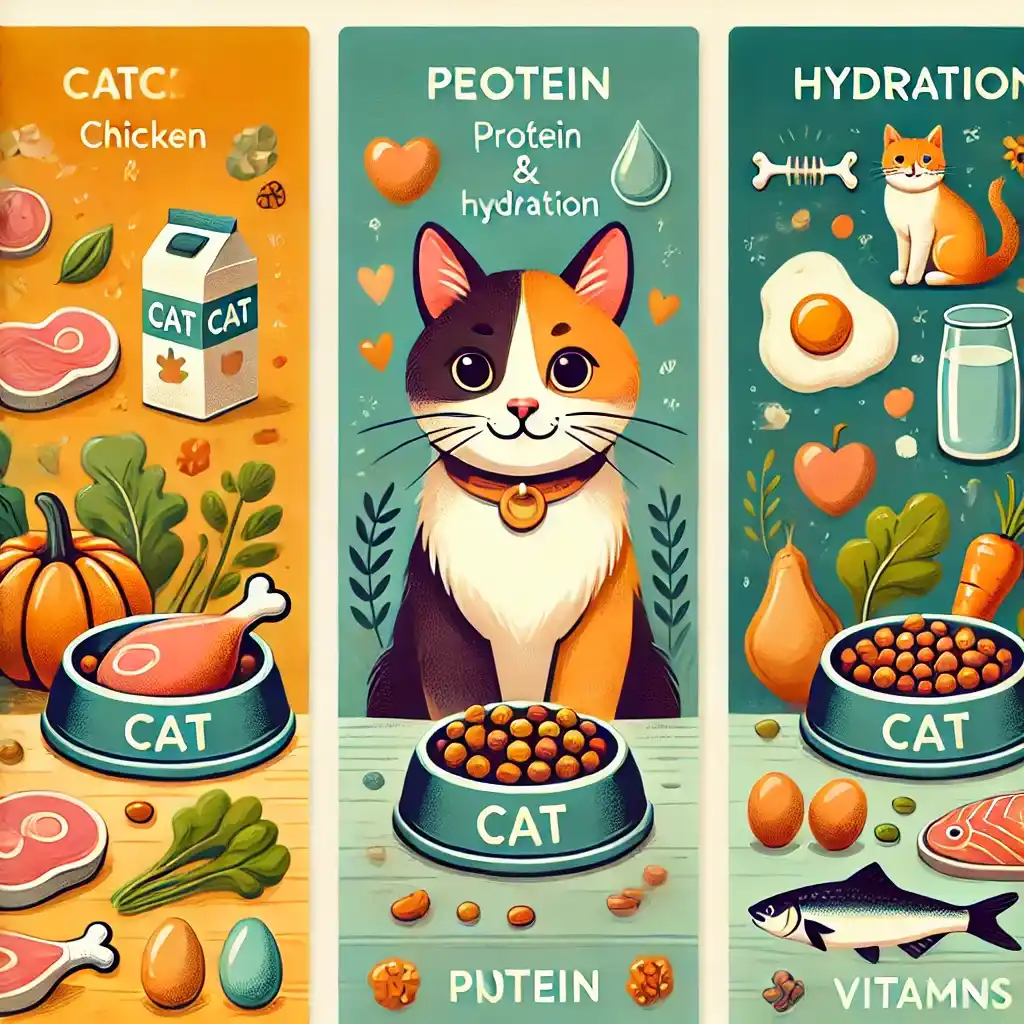
Tips for Selecting Cat Food:
- Look for high-quality protein: Check that the first ingredient listed on the cat food label is a type of meat, such as chicken, turkey, or fish.
- Avoid fillers: Cat food with high amounts of corn, wheat, or soy may not provide sufficient nutrition and can lead to digestive issues.
- Wet vs. dry food: Wet food helps with hydration, while dry food is better for dental health. A balanced combination is often best for maintaining overall health.
Nutritional Needs at Different Life Stages
The nutritional needs of cats change as they age. Ensuring you provide food that matches your cat’s life stage is essential for their well-being.
- Kittens (up to 1 year): Kittens require a diet high in protein and fat to support their rapid growth and energy needs. Look for kitten-specific formulas that include DHA for brain development.
- Adult Cats (1-7 years): Adult cats need a balanced diet that supports their activity level. Ensure their diet has sufficient protein, moderate fat, and essential vitamins.
- Senior Cats (7+ years): Older cats may require food that is easier to digest and lower in calories to maintain a healthy weight. Supplements for joint health, such as glucosamine, may also be beneficial.
4. Vaccinations and Preventive Care
Essential Vaccines for Cats
Vaccines are an essential part of preventive health care, protecting your cat from various diseases. Core vaccines, recommended for all cats, include:
- Feline Panleukopenia (FPV): Also known as feline distemper, this virus is highly contagious and can be fatal if left untreated.
- Feline Herpesvirus (FHV-1) and Feline Calicivirus (FCV): These viruses are common causes of upper respiratory infections.
- Rabies: A serious virus that can affect cats and poses a risk to humans, rabies vaccination is often legally required.
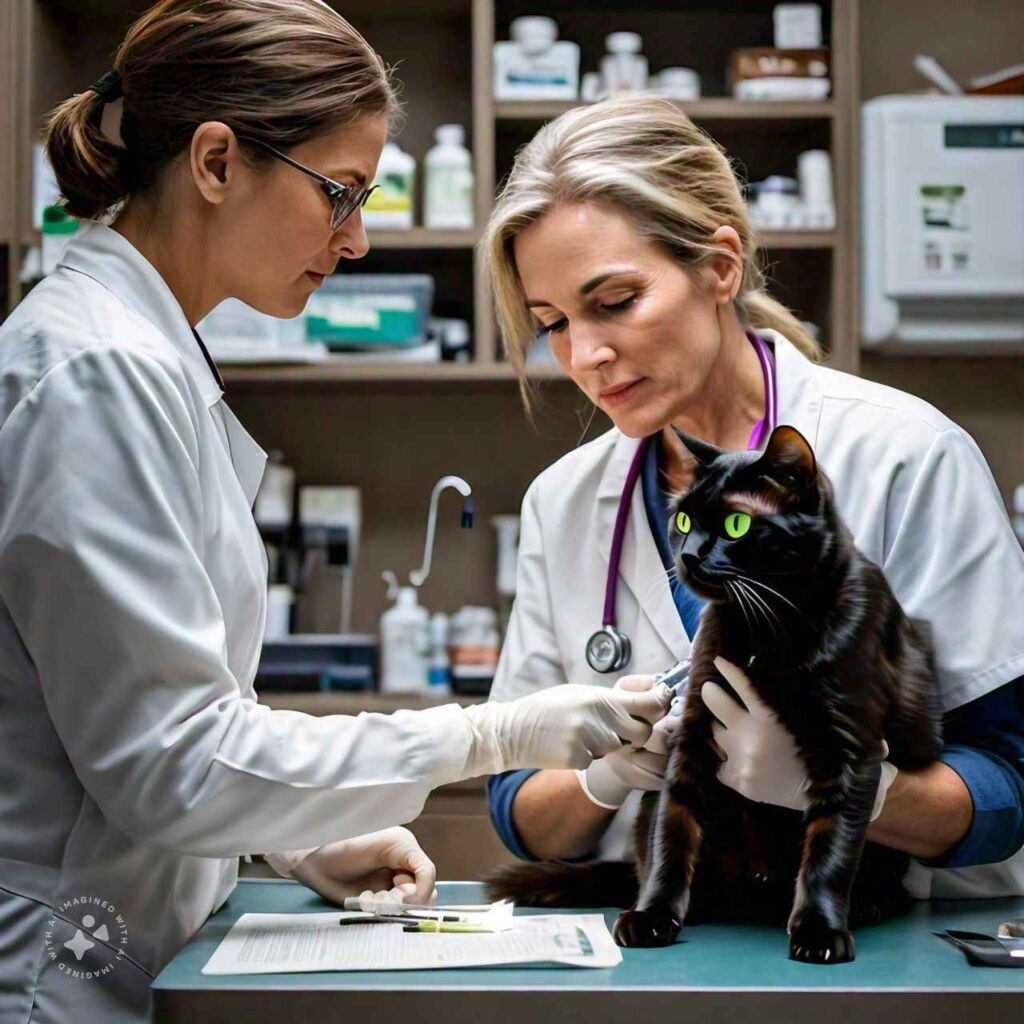
Parasite Prevention Tips
Preventing parasites is crucial for keeping your cat healthy and comfortable. Fleas, ticks, and worms can cause serious health problems if not addressed promptly.
- Flea control: Use vet-recommended flea treatments and check your cat’s fur regularly.
- Deworming: Ensure your cat receives regular deworming treatments, especially if they spend time outdoors.
- Tick prevention: Ticks can carry diseases, so inspect your cat for ticks after they’ve been outside and use preventive treatments as advised by your vet.
5. Common Health Issues and Treatments
Identifying Symptoms Early
Understanding the early signs of common health problems can make a significant difference in your cat’s quality of life. Some symptoms that warrant immediate attention include:
- Loss of appetite: Could indicate various issues, from dental problems to systemic diseases.
- Vomiting or diarrhea: Occasional vomiting can be normal, but frequent vomiting or diarrhea may indicate gastrointestinal issues.
- Changes in behavior: Unusual hiding, aggression, or lethargy can be signs of underlying health concerns.
Effective Treatments for Common Illnesses
Effective treatment begins with a proper diagnosis. For example:
Dental disease: Regular dental cleanings and dental diets help prevent serious dental issues.
Urinary Tract Infections (UTIs): Symptoms include frequent urination and straining. Treatment usually involves antibiotics and dietary changes.
Feline Lower Urinary Tract Disease (FLUTD): This can be more severe and may require specialized treatment, such as medication and environmental enrichment.
6. Grooming and Hygiene
Grooming Tips for Healthy Fur and Skin
Regular grooming is essential for your cat’s skin and coat health. While cats naturally groom themselves, owners can help by brushing and checking for any signs of skin issues.
Benefits of Regular Grooming:
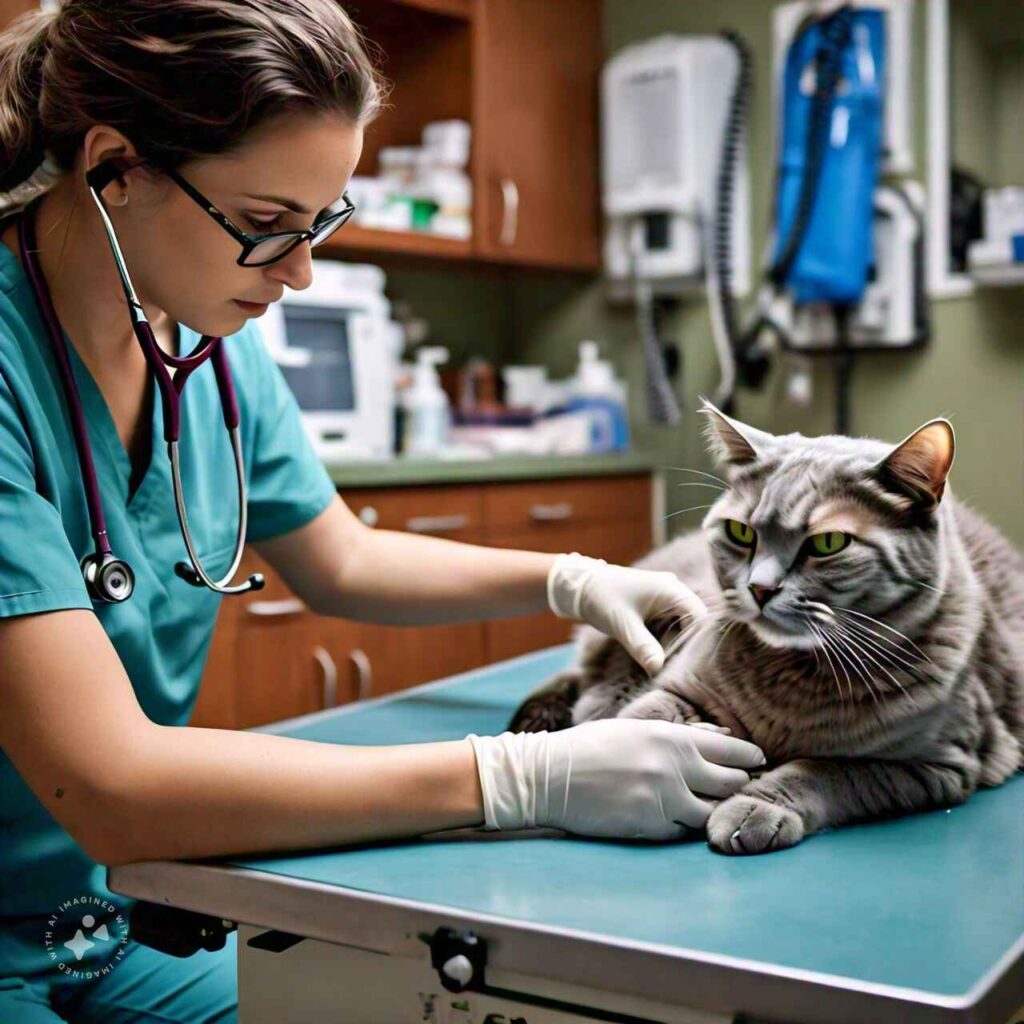
- Reduces shedding: Regular brushing helps remove loose fur and reduce hairballs.
- Promotes healthy skin: Brushing distributes natural oils and keeps the skin moisturized.
- Detects issues early: Grooming allows you to spot skin problems or external parasites early.
Types of Brushes:
- Slicker brush: Great for long-haired cats to prevent mats and tangles.
- Bristle brush: Ideal for short-haired cats to remove loose fur and distribute oils.
Maintaining Dental Health
Oral hygiene is vital for preventing gum disease and other dental issues. Regular dental care can improve your cat’s overall health and prevent complications related to infections.
Tips for Good Dental Hygiene:
- Daily brushing: Use a vet-approved toothbrush and toothpaste designed for cats.
- Dental treats: These can supplement brushing and help reduce tartar buildup.
- Regular dental check-ups: Professional cleaning by a vet helps maintain dental health and catch issues early.
Signs of Dental Problems:
- Bad breath
- Difficulty eating or chewing
- Red or bleeding gums
7. Creating a Safe Environment
Home Safety Tips for Cats
Keeping your home cat-friendly means minimizing hazards that could harm your pet. Common household dangers include toxic plants, small objects, and open windows.
How to Make Your Home Safe:
- Remove toxic plants: Plants like lilies, tulips, and poinsettias can be harmful.
- Secure windows: Use window screens to prevent your cat from falling.
- Hide cords: Electrical cords can be a temptation for cats to chew. Use cord protectors to keep them safe.
Indoor vs. Outdoor Safety Considerations
While outdoor exploration can offer stimulation, it also poses risks such as predators, traffic, and exposure to diseases.
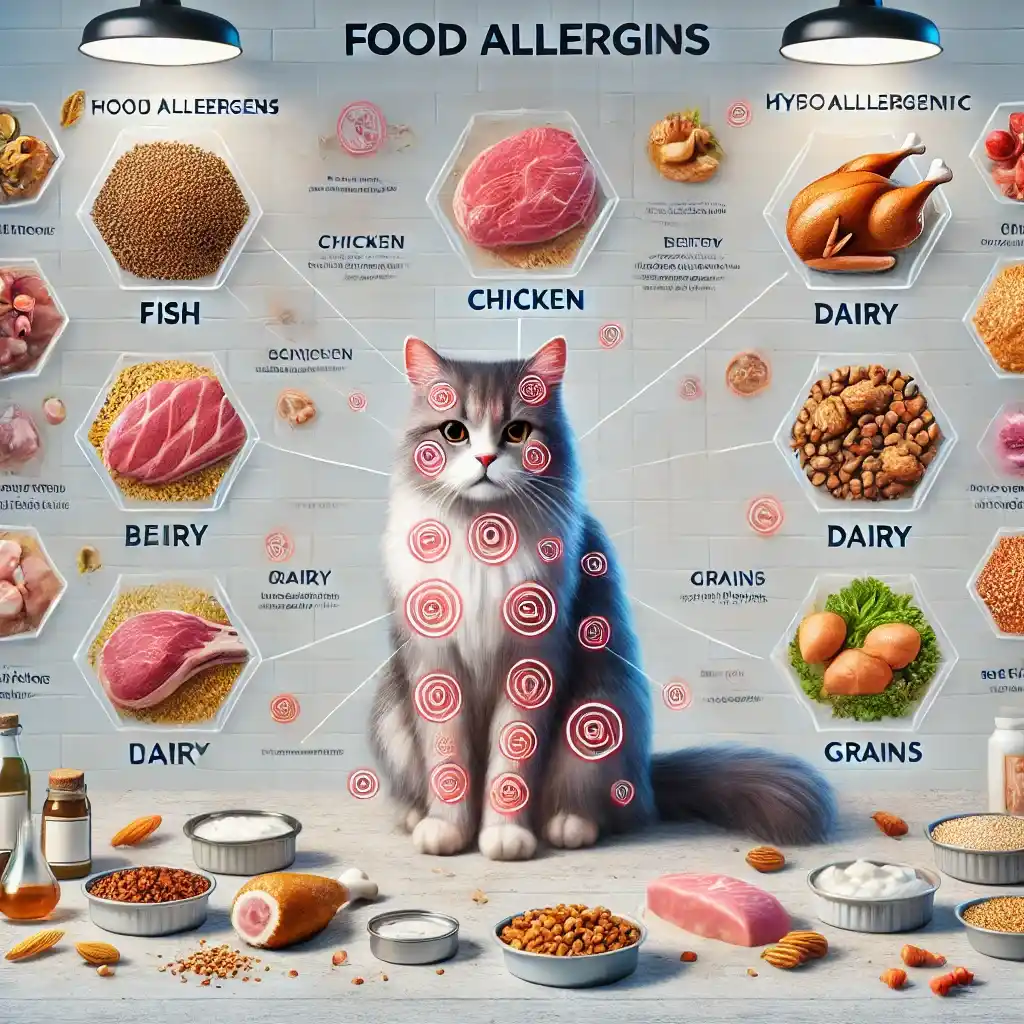
Pros of Keeping Cats Indoors:
- Reduced risk of injuries and diseases
- Longer lifespan due to a controlled environment
- Less exposure to parasites
Tips for Safe Outdoor Time:
- Supervised outdoor time using a harness and leash
- Secure outdoor enclosures or cat patios
8. Behavior and Mental Wellness
Understanding Cat Behavior
Cats communicate through subtle cues, such as body language and vocalizations. Knowing what these signs mean can help you respond to your cat’s needs and foster a better bond.
Common Cat Behaviors and Their Meanings:
- Purring: Generally a sign of contentment, though sometimes it can indicate discomfort.
- Slow blinking: A sign of trust and affection.
- Tail position: A tail held high indicates confidence, while a tucked tail signals fear or submission.
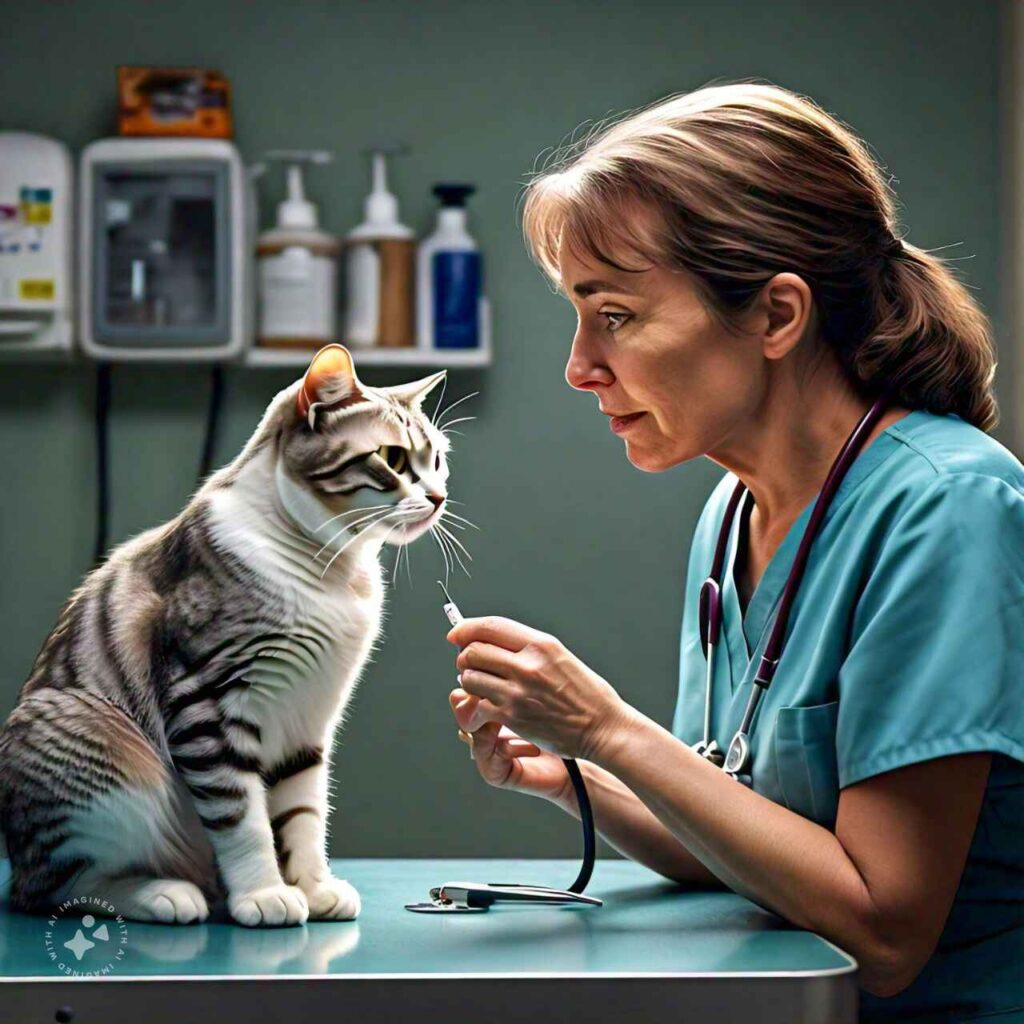
Keeping Your Cat Mentally Stimulated
Mental stimulation is just as important as physical health for your cat. Without it, cats can become bored and develop behavioral issues.
Ways to Engage Your Cat:
- Interactive toys: Toys that mimic prey encourage hunting instincts and keep your cat entertained.
- Puzzle feeders: These provide both mental and physical stimulation while feeding.
- Scratching posts: Encourage natural scratching behavior, which keeps claws healthy and helps relieve stress.
9. Senior Cat Care
Adjusting Care for Older Cats
Senior cats often have different needs than younger ones. Adjustments in diet, exercise, and environment can help them remain comfortable and healthy as they age.
Key Changes for Older Cats:
- Dietary adjustments: Choose senior cat food that is lower in calories and easier to digest.
- Joint support: Provide soft bedding and ramps to help them reach their favorite spots.
- Frequent vet visits: Senior cats benefit from check-ups every six months to monitor age-related changes.
Signs of Aging and How to Help
Common signs of aging in cats include reduced mobility, changes in grooming habits, and sleeping more than usual. Understanding these changes can help you provide better care.
Helping Your Senior Cat:
- Comfortable resting areas: Provide warm, cozy spots with easy access.
- Monitor their weight: Older cats may lose weight due to underlying health conditions.
- Hydration: Ensure they have access to fresh water at all times to support kidney health.
10. Emergency Care Tips
Recognizing When Your Cat Needs Urgent Care
It is vital to recognize when your cat requires immediate veterinary attention. Cats are good at hiding pain, so you need to be vigilant about their behavior.
Signs of an Emergency:
- Difficulty breathing
- Vomiting repeatedly or severe diarrhea
- Sudden collapse or seizures
How to Prepare for Veterinary Emergencies
Having an emergency plan can save valuable time when your cat is in distress.
Creating an Emergency Kit:
- Vet contact info: Keep a list of your vet’s contact and nearby emergency clinics.
- First aid supplies: Include items like gauze, tweezers, and antiseptic wipes.
- Cat carrier: Ensure your cat is comfortable with their carrier for stress-free transport.
3. Table for Routine Health Check Components
| Health Check Component | Purpose | Common Findings |
|---|
| Weight and body condition | Monitor obesity or weight loss | Weight management needs |
| Eye, ear, and mouth examination | Detect infections or dental disease | Redness, discharge, tartar |
| Abdominal palpation | Identify pain or abnormalities | Tumors, tenderness |
| Heart and lung auscultation | Detect murmurs or respiratory issues | Abnormal heart sounds |
FAQs
1. Why is expert cat care important?
Expert cat care ensures your cat’s health, preventing issues and supporting a long life. It involves vet advice on nutrition, behavior, and preventive care.
2. What do vets check during routine visits?
Vets assess weight, check eyes, ears, and mouth, palpate the abdomen, and listen to the heart and lungs. They may also recommend blood tests for older cats.
3. What should cat food contain?
Choose high-quality protein-based food with minimal fillers. Wet food helps hydration; dry food supports dental health for a balanced diet.
4. Why are vaccines necessary?
Vaccines protect cats from serious diseases like FPV, FHV-1, FCV, and rabies. They follow an initial dose and booster schedule.
5. How to prevent cat parasites?
Use vet-recommended treatments for fleas, ticks, and worms, check regularly, and deworm especially for outdoor cats to avoid health issues.
Conclusion
Providing expert cat care is essential for your feline’s health and happiness. Regular vet visits, proper nutrition, preventive care, and a safe, stimulating environment contribute to a higher quality of life. Understanding your cat’s behavior and adjusting care as they age ensures they remain healthy and content. By recognizing potential health issues early and maintaining good grooming and hygiene practices, you create a loving and safe space for your cat. Prioritizing these aspects not only keeps your pet healthy but strengthens the bond you share with them
